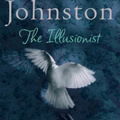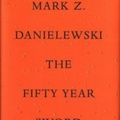W. Somerset Maugham: Christmas Holiday

This novel was one of my favourites when I was a highschool student. I borrowed it more then once from the library, and I longed to own my own copy but I was unable to obtain one. I have no idea what might have first drawn me to this book, as the cover of the Hungarian edition is an eyesore, and the blurb doesn’t make up for the ugliness of the cover either. Anyway, somehow I came across this book in the library, borrowed it, read it, and was immediately fascinated by it. I was enchanted by the unique atmosphere of Paris lingering in the pages of the novel, and I loved the way Maugham contrasted the sheltered and happy English life of Charley, the naive, kind, childish protagonist with the life led by the other characters in Paris. Moreover, I absolutely adored the character of Charley’s disagreeable, ruthless, cynical friend, Simon, who is planning to conquer the world.
I’ve been planning to reread the novel for a long time to see what I might find in it as an adult reader, but when I finally I got around to rereading it, it was with some apprehensions. As it turned out, I still find Christmas Holiday a rather good novel, but my teenage enthusiasm is gone, and now I see many faults in the novel that escaped my attention ten years ago. But before I go into this, let me write a couple of words about the story and the characters.
The protagonist of the novel is young Charley Mason who leaves a loving and caring family behind in order to spend the Christmas holiday in Paris and while there, visit his childhood friend, Simon. The trip to Paris is a coming-of-age present from his parents, and it is the first opportunity in Charley’s life when he can try out what it’s like to be a man. However, as you might have guessed, the trip doesn’t turn out as expected. Simon mostly ignores Charley, and when he doesn’t, he goes on to fill the head of the innocent (ignorant) Charley with angry and cynical expositions of his political and other views. When he is not with Simon, Charley spends most of his time with Lydia, a prostitute of Russian origins who gradually lets him in on the story of her past and her tragic marriage.
The characters, stories and views of Simon and Lydia of course all serve to disrupt Charley’s happy, quiet, complacent and boring life which he’s been living for 23 years, and to make the young man question the meaning of the life he’s been living up until now. Christmas Holiday is a kind of rite-of-passage and bildungsroman, in which the initially naive protagonist catches a glimpse of a life hitherto unbeknownst to him, and this makes him reevaluate and rearrange his own opinions and priorities in life.
I don’t have any problems with this idea as such, but I don’t like the way Maugham handles his material as much as I liked it ten years ago. There are novels which contain several dated elements but still don’t feel dated as a whole. And there are novels – and Christmas Holiday is one of these – which seem to belong to a world so very much different from mine, and deal with this old world in such a musty way that I cannot help but feel that I no longer have anything to do with that particular book.
And I feel the same in connection with Maugham’s characterization, which is much too 19th century style for my current taste. As nowadays I’m a reader of mainly contemporary fiction, reading descriptions of a character’s physical appearance feels strange and a bit irritating for me. Charley may well have a pair of playfully shining blue eyes, but this fact doesn’t tell me anything about his personality, and I find it superfluous that Maugham keeps repeating such small, irrelevant details throughout the novel.
Fortunately, however, I managed to find several elements in the novel which were more to my liking. In fact, these are exactly the things which I probably didn’t notice ten years ago but notice and love now. First of all, I really enjoyed the way Maugham mixes the different viewpoints and pieces of different stories: the stories of Simon and Lydia sometimes complement each other nicely, and at other times contradict each other, therefore it’s a job for naive young Charley to decide whom of the two unreliable narrators he gives credit to.
Here let me mention a small and virtually unimportant, but for me strangely beautiful and satisfying episode of the novel. At one point Simon is telling a story to Charley about Lydia’s husband, and he mentions a detail which can only be known to someone who was present at the event Simon recounts. Well, Simon was definitely not there. Charley also notices this, and mildly reproves Simon for freely embellishing the story and not sticking to the truth. Of course these sentences really don’t count much in the novel as a whole, still, I appreciate this kind of self-reflection and irony to a great extent.
Apart from the interesting characteristics of the narration, I still consider the way Maugham contrasts the innocent joviality of Charley with the unhappiness, cynicism and world-weariness represented by Simon and Lydia magnificent and rather beautiful. And the last couple of paragraphs of the novel still give me the creeps and make me forget about all the faults and old-fashioned style of the previous pages.





